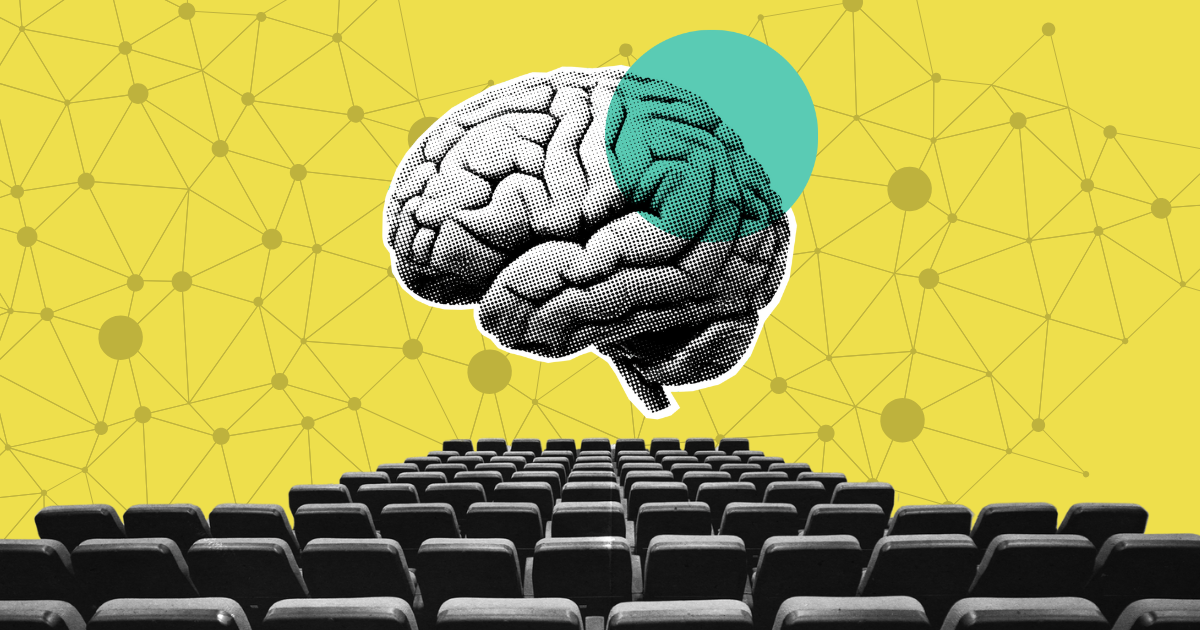Empowering Leaders Through Responsible, Applied AI
American University Institute for Applied Artificial Intelligence Convenes Research and Practice
Interdisciplinary and on
the Cutting Edge of
Research and Application
Artificial Intelligence is transforming industries, shaping careers, and reshaping society. At the Institute for Applied Artificial Intelligence (IAAI) at American University, we're leading this transformation through interdisciplinary collaboration, cutting-edge research, and applied learning experiences.
About the Institute
Established in 2025, the IAAI positions American University at the forefront of AI education and research. Our institute fosters innovative and responsible applications of artificial intelligence, empowering our community of students, faculty, and industry partners with the tools and knowledge necessary to thrive in a rapidly evolving technological landscape.
We believe that understanding AI isn't enough—students and faculty must engage actively with AI tools and apply these innovations to solve real-world challenges. Through courses, workshops, speaker series, research collaborations, and strategic industry partnerships, the IAAI is committed to providing transformative, practical, and ethical AI experiences.
Our Mission
To position the American University as a global leader in AI education and research by integrating AI into curricula, pioneering ethical guidelines, fostering industry collaborations, and promoting high-impact research and teaching innovations.
Meet Our Leadership
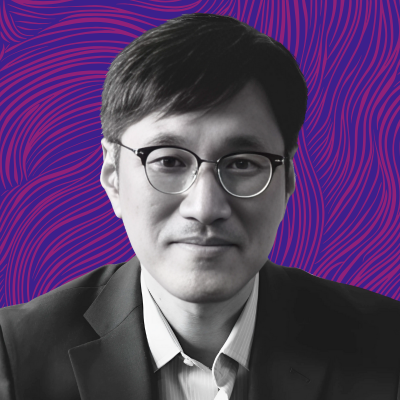
Gwanhoo Lee
Director
Professor
Information Technology and Analytics
Kogod School of Business
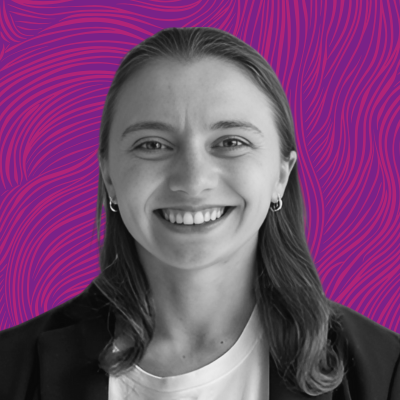
Angela Virtu
Associate Director
Professorial Lecturer
Information Technology and Analytics
Kogod School of Business
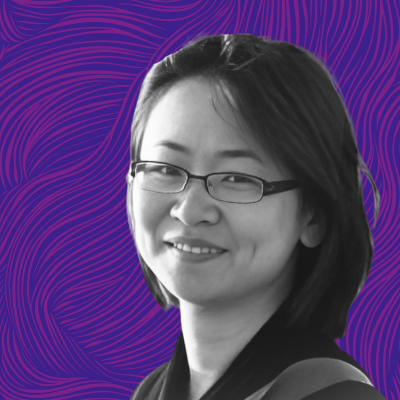
Bei Xiao
Associate Director
Provost Associate Professor
Computer Science
College of Arts & Sciences
Key Areas of Impact
At the Institute
for Applied Artificial Intelligence, AI education crosses traditional academic boundaries.
Interdisciplinary
and Applied AI Education
Faculty from Kogod, the College of Arts and Sciences, the School of Public Affairs, the School of International Service, and the Washington College of Law collaborate to create an inclusive, comprehensive curriculum.
Sage AI and Artisan AI Courses:
We offer courses fully dedicated to AI as well as courses that integrate AI into existing business disciplines. More than 40 courses already incorporate AI, ensuring students graduate with relevant, market-ready skills.
Graduate and Professional Programs:
We’ve enhanced our programs to include the innovative MS in Business Analytics and AI, and our new Graduate Certificate in Analytics and AI, equipping students with specialized knowledge essential for competitive advantage.
Ethical and Responsible AI Practices
IAAI recognizes the importance of guiding ethical and responsible AI use. Our institute provides clear policies, training, and resources to ensure our community understands and embraces responsible AI practices. We aim to produce leaders who advocate for AI transparency, accountability, and ethical decision-making.
Industry Engagement
and Experiential Learning
Real-world applications are central to our AI education model. Strategic partnerships with industry leaders offer unique experiential learning opportunities, including internships, research collaborations, and AI use-case competitions. This approach ensures our graduates enter the workforce with practical, impactful experiences.
Thought Leadership
and Research Excellence
Our institute actively promotes groundbreaking research at the intersection of AI, business, governance, and ethics. Supported by a robust team of affiliated faculty and external experts, the IAAI advances knowledge and thought leadership through:
+ High-impact, interdisciplinary research initiatives
+ Regular AI research workshops and seminars
+ Speaker series featuring industry and academic leaders such as executives from Google, Microsoft, and Swift Ventures.
[Kogod is] well ahead of so many universities around the world.”
— Brad Smith, Vice Chair & President, Microsoft
Upcoming Events
Affiliate Faculty Fellows
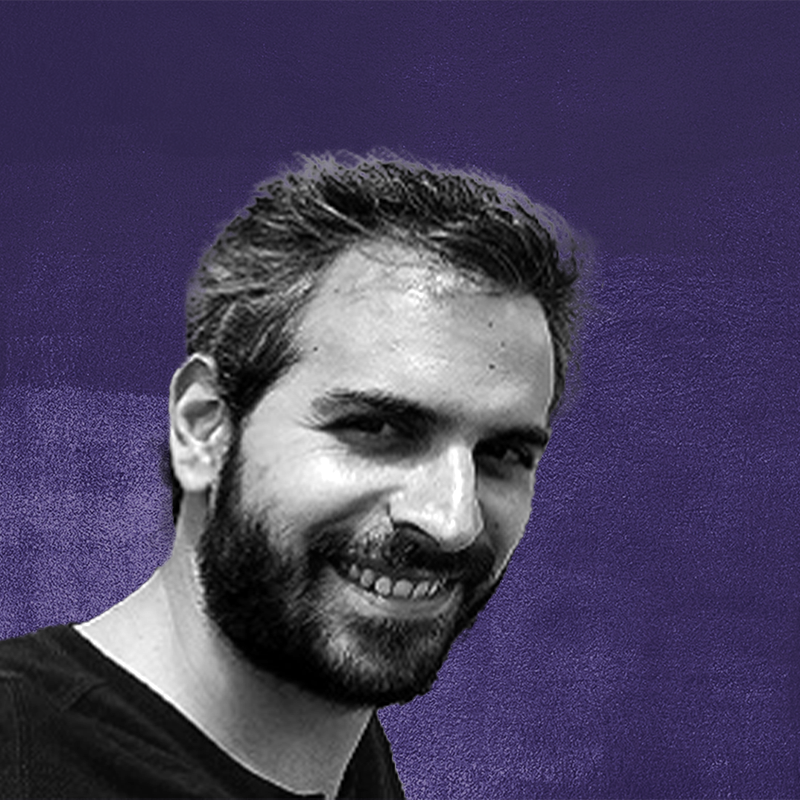
Dr. Boukouvalas' research focuses on the development of interpretable machine learning models and algorithms for the analysis of big multi-modal data, by combining aspects from information geometry, mathematical statistics, and numerical optimization. His work involves different types of data, including biomedical images for studying psychiatric illnesses, social and linguistics data for understanding political and social trends, and chemical data for drug discovery and materials design.
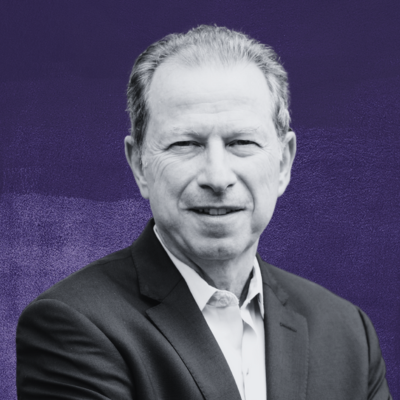
Professor Carmel teaches Information Technology (I.T.). He is currently working on a number of research areas: Digital identity; Crypto ethics; Future of work.
During the early decades of the rise of the global internet, Carmel studied the globalization of technology work and wrote three books in this domain. Carmel’s 1999 book "Global Software Teams" was the first on this topic -- and is considered a landmark in the field, helping many organizations take their first steps into distributed tech work. His second book "Offshoring Information Technology" came out in 2005 and became popular as outsourcing began to be taught in business schools around the world. His 2011 book is about the special issues that time zone separation imposes on global coordination of work. “I’m Working While They’re Sleeping: Time Zone Separation Challenges and Solutions” is co-authored with his AU colleague Alberto Espinosa.
He has written over 100 articles, reports, and manuscripts. He consults and speaks to industry and professional groups.
He is a tenured full Professor at the Information Technology department, Kogod School of Business at American University. In 2014-2016 Carmel was interim Dean of the Kogod School of Business.
In the 1990s he co-founded and led AU’s program in Management of Global Information Technology. He has been a Visiting Professor at Haifa University (Israel), University College Dublin (Ireland), at Universidad Adolfo Ibáñez (Chile), Beijing Normal University (China), and Ca' Foscari University of Venice (Italy).
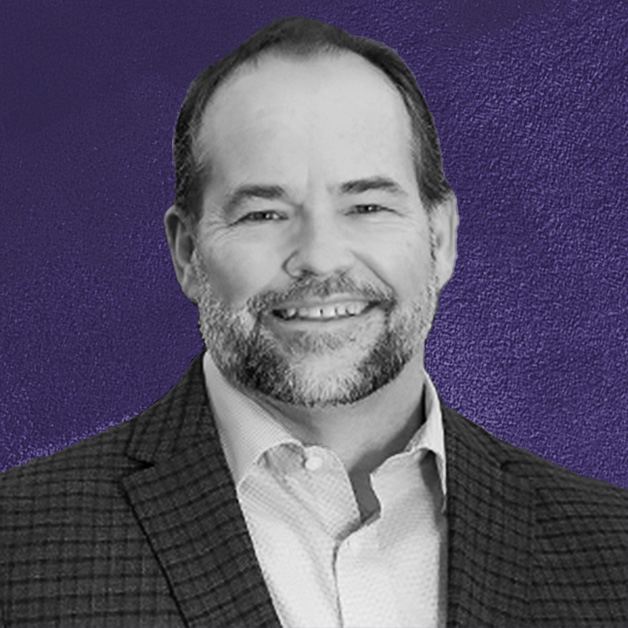
- Dr. Clark has expertise in high performing teams, leadership, diversity, and strategic human capital. His current research projects include work in multi-path leadership, team knowledge sharing, cybersecurity knowledge networks, team adaptation, innovation through design teams and multiteam systems, and stigmatized occupations. Six Paths to Leadership: Lessons from Successful Executives, Politicians, Entrepreneurs, and More, his book with coauthor Meredith Persily Lamel, was published in 2021.
Clark's field research engages a variety of organizations, including medical, design, and sports teams, high-tech companies, and entrepreneurial startups. His work has been published in top academic outlets, including the Academy of Management Journal, Journal of Applied Psychology, Design Studies, Human Resource Management, and Group Dynamics, and has been presented at conferences and workshops around the world.
Before earning his Ph.D., Professor Clark gained a variety of experiences in public and private sector management, as a consultant, program director, trainer, treatment specialist, and board member. His clients have included some of the largest – and some of the smallest – companies in the world. He has held visiting scholar appointments at Instituto de Empresa (Madrid, Spain), ISCTE (Lisbon, Portugal), and Erasmus University (Rotterdam, Netherlands).
At Kogod, Professor Clark's courses include Leading High Performance Teams, Leadership Challenges & Competencies, Management of Organizations and Human Capital, Leading Organizational Change, Organization and Social Network Analysis, and Strategic Human Capital Management.
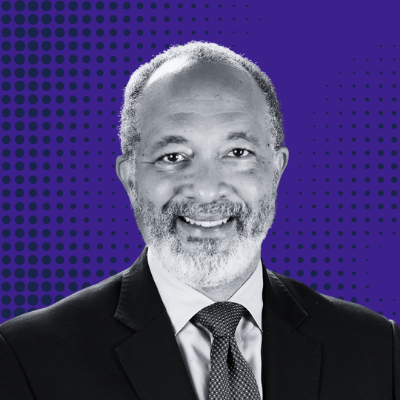
Dr. Derrick L. Cogburn is Professor at American University in Washington, DC. He has a joint appointment in the School of International Service where he serves in the Department of Environment, Development & Health; and in the Kogod School of Business where he serves in the Department of Information Technology & Analytics. He also serves at the founding Executive Director of the AU Institute on Disability and Public Policy (IDPP), is Faculty Co-Director of the Internet Governance Lab (IGL), and is Director of COTELCO the Collaboration Laboratory. Dr. Cogburn’s multifaceted research interests are located at the intersection of information technology, global governance, and socio-economic development. He uses a variety of computational text mining and data analytics approaches including unsupervised and supervised machine learning and artificial intelligence methodologies to better understand large-scale text based datasets in the areas of cybersecurity, disability policy, and distributed collaboration in knowledge work. He has published widely, with his most recent books being: Researching Internet Governance: Methods, Frameworks, Futures (MIT Press, 2020); Transnational Advocacy Networks in the Information Society: Partners or Pawns? (Palgrave-McMillian, 2017); Making Disability Rights Real in Southeast Asia: Implementing the CRPD in ASEAN (Lexington, 2016); and The Turn to Infrastructure in Internet Governance (Palgrave-McMillan, 2016). He is Editor of the Palgrave Macmillan book series Information Technology and Global Governance and serves on editorial boards for Journal of Information Technology and Politics, Review of Policy Research, and Journal of Political Science Education. He is former Chair of the Review Panel for the American Academy for the Advancement of Science (AAAS), Diplomacy, Security and Development, Science Technology Policy Fellowships, and served as a member of the inaugural AAAS Big Data and Analytics Fellowship Committee and returned to serve as its chair. He served as a member of the High-Level Panel of Advisors for the United Nations Global Alliance for Information and Communication Technologies and Development (UNGAID). Dr. Cogburn has been Principal Investigator on grants from a wide variety of government, private sector, and foundation sources including, the National Science Foundation Department of Education, Microsoft, Microsoft Research, Hewlett Packard, Cisco Systems, JPMorgan Chase, the WK Kellogg Foundation, and The Nippon Foundation. He also served on the Committee of Visitors for the Office of Cyberinfrastructure at the National Science Foundation. At Syracuse University, he was tenured Associate Professor in the School of Information Studies and Senior Research Associate in the Moynihan Institute at the Maxwell School. He is past president of the Information, Technology, and Politics section of the American Political Science Association and of the International Communication section of the International Studies Association. He served as Executive Director of the Global Information Infrastructure Commission-Africa and Vice Chair of the Global Internet Governance Academic Network. He holds a PhD in political science from Howard University in Washington, DC, where he was a W.K. Kellogg doctoral fellow at the Ralph J. Bunche International Affairs Center.
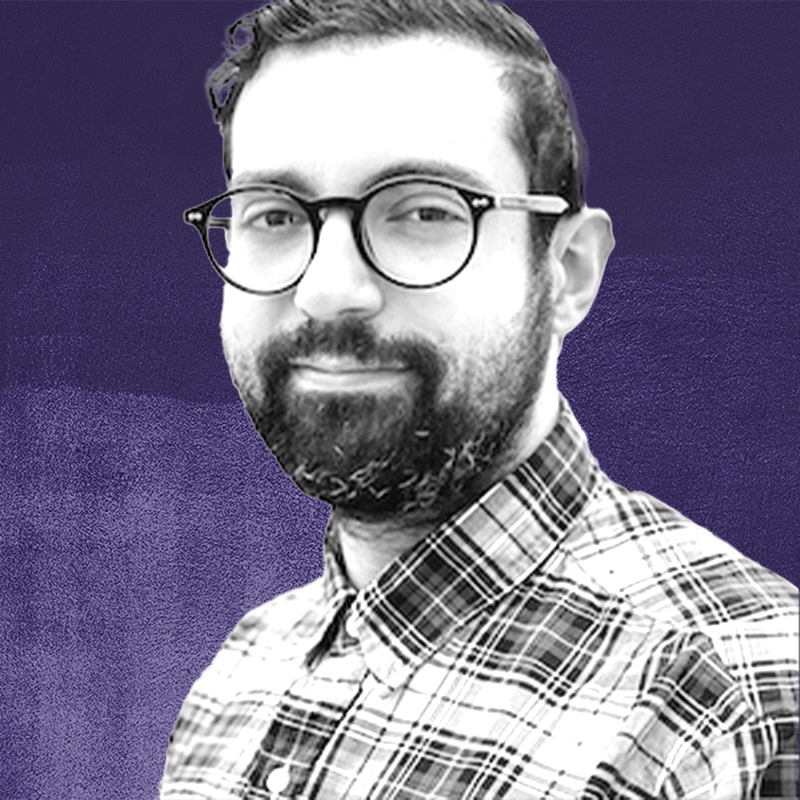
Roberto Corizzo conducts research at the intersection of machine learning, big data computing, and data mining. His research addresses analytical tasks such as sensor data forecasting, time series classification, anomaly detection, and feature extraction tailored to real-world applications in fields such as energy, cybersecurity, astrophysics, and social networks.
Before coming to American University, he was a postdoctoral research fellow in the Department of Computer Science at University of Bari, Italy, and a research intern at the INESC TEC research institute in Porto, Portugal.
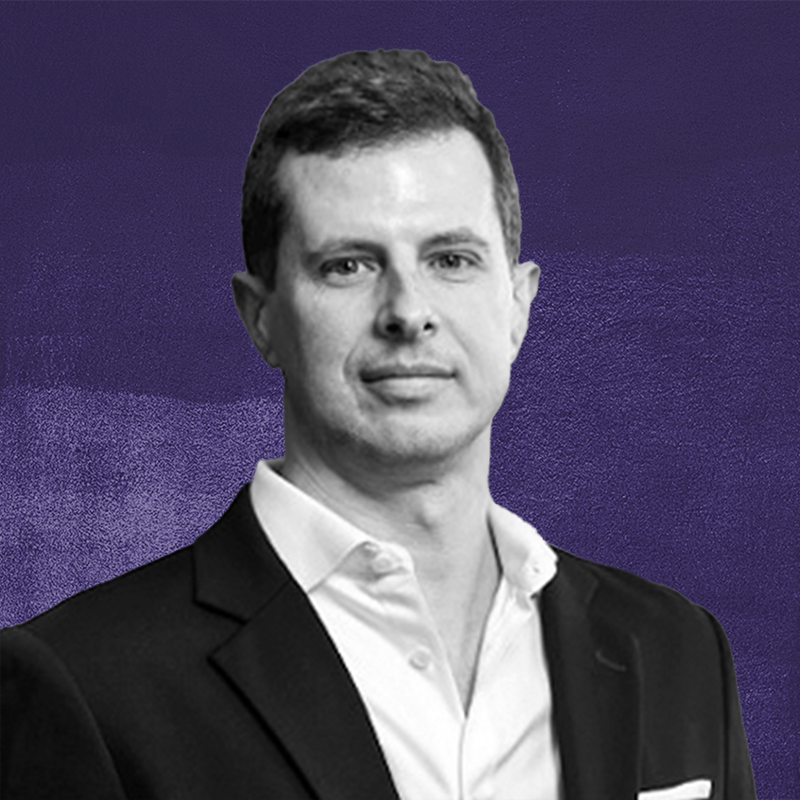
Jonathan Crock is an expert in human rights law, democracy, and technology. He is the founding director of the Futures of Democracy, Tech & Human Rights Lab and a faculty fellow at the Institute for Applied Artificial Intelligence at American University's Kogod School of Business. Professor Crock researches the human right to democratic decision-making, including new developments in rights of direct political democracy, environmental democracy, workplace democracy, democratic control of technology, and the human right to democratic decision-making in global governance. His research focuses on how innovations in democracy that shift power can help dismantle neocolonialism and systemic racism, sexism, and classism. His forthcoming book is entitled How to Save Democracy in the Age of AI.
Professor Crock has given talks in the United States, Canada, Mexico, England, Scotland, Portugal, and Australia, including at Harvard University, Stanford University, University of Chicago, Cornell Law School, University of Michigan, University of Melbourne Law School (Australia), Georgetown University Law Center, University of Maryland School of Law, The New School, University of London (England), University of Dundee (Scotland), University Institute of Lisbon (Portugal), University of California—Santa Barbara, Fordham University, College of William & Mary, Rutgers University, and American University, among others. He holds a master’s in international human rights law (Oxford), a terminal degree in law (London), certificat universitaire in international relations and conflict analysis (Louvain), and bachelor’s in politics and international relations (London). He is completing his Ph.D. at Leiden University (Netherlands) and is a research affiliate at the Grotius Center for International Legal Studies at Leiden University Law School.
Professor Crock's previous experience includes working at the U.S. Department of State’s Office of War Crimes Issues, U.S. Institute of Peace, Office of the U.N. High Commissioner for Refugees, U.S. Department of the Treasury, U.S. Agency for International Development, Supreme Court of the United States, and as a foreign policy advisor on U.S. presidential campaigns. He previously taught at George Washington University and the College of William and Mary. He has lived, worked, and traveled in over 80 countries and speaks French, Russian, and Polish.
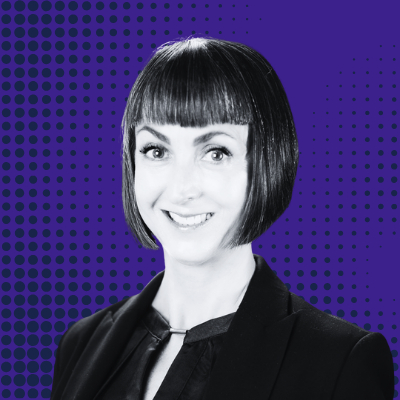
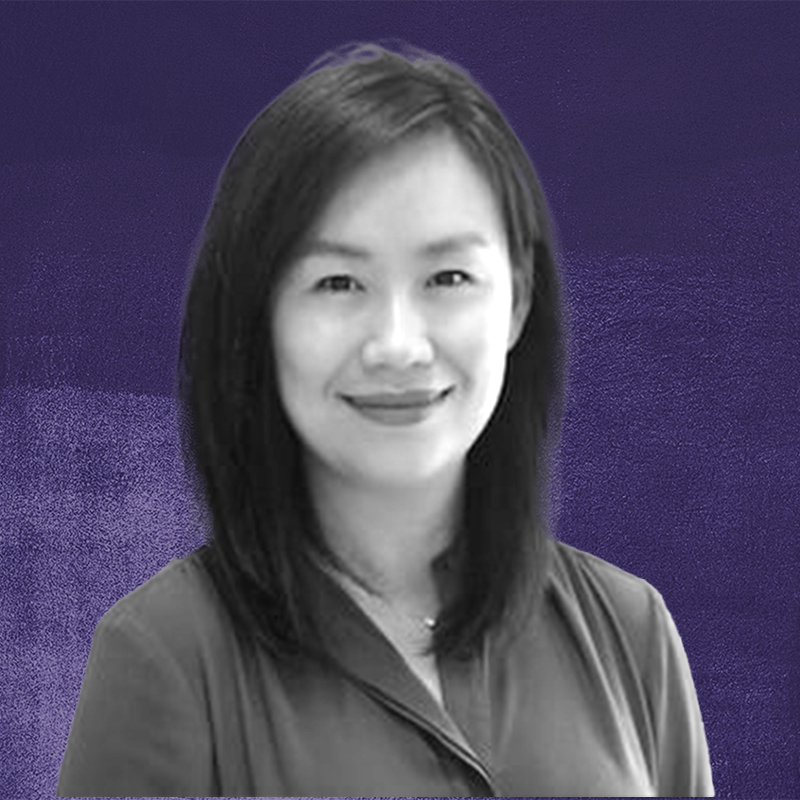
Dr. Ding is broadly interested in trustworthy machine learning with its applications in cybersecurity and scientific data analytics.
She has extensive experience doing cybersecurity R&D in industrial research labs. Before joining AU, she was a Research Principal at Accenture Labs (the R&D division of Accenture), and an adjunct professor at Johns Hopkins University.
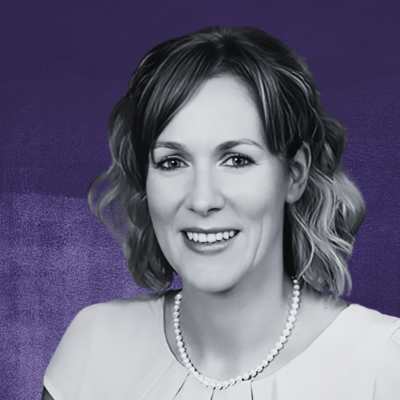
Krisztina Domjan is a progressive educator with experience in a range of educational settings: higher, adult, and secondary education of civilian and military learners. She has taught Intercultural Studies, Research Writing, Composition and Discussion courses in Hungary, in England, in Germany (military base) and in the USA. She is an advocate of lifelong learning, professional development, innovative teaching practices, continuous fieldwork and qualitative research in education for the enhancement of the learning experience, inclusion and student retention. She shares innovative and stimulating ideas and professional development resources with colleagues and in professional learning circles. She has experience teaching in-person and online courses.
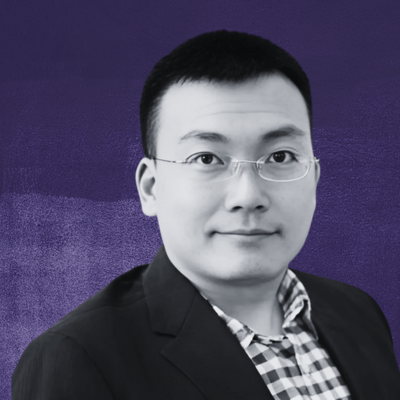
Charles Duan is an assistant professor at American University Washington College of Law. His research focuses on how intellectual property and technology law interact with public policy and the public interest. He has written about patent law and drug pricing, copyright protection in legal texts, government use of patents, consumer interests in technology, and conflicts between regulation and intellectual property.
Duan previously was a postdoctoral fellow at Cornell Tech and a research fellow at Colorado Law School, working on National Science Foundation–funded Internet law research. He was also the director of technology and innovation policy at the R Street Institute, the director of the patent reform project at Public Knowledge, and a patent attorney at the law firm Knobbe Martens. In addition to his academic publications, he has authored over two hundred amicus curiae briefs, policy papers, administrative comments, and media articles, which have been cited in the Supreme Court and federal courts of appeals. He received an A.B. degree in Computer Science from Harvard College, and his J.D. from Harvard Law School.
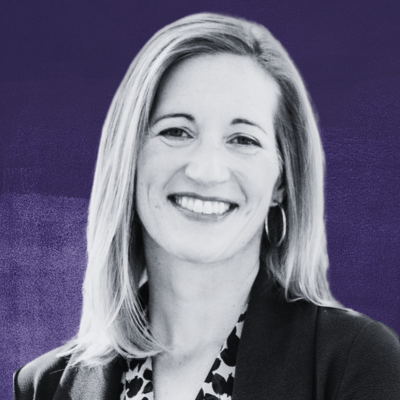
Professor Evans is a Certified Public Accountant and a Certified Fraud Examiner and has extensive industry experience handling a range of forensic accounting issues, including fraud investigations, Securities and Exchange Commission and Department of Justice enforcement actions, financial reporting and disclosure issues, technical accounting issues, and internal control reviews.
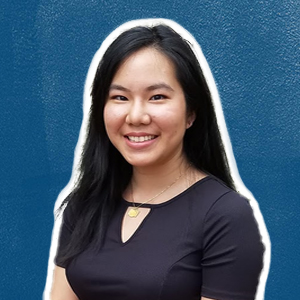
Anna Fung is an Assistant Professor of Management at the Kogod School of Business in American University.
Her research explores the intersection of inventive breakthroughs and sustainability. She investigates how companies can leverage innovation to reduce environmental harm, promote sustainable business practices alongside ESG and CSR initiatives, and create long-term value in a rapidly changing technological landscape. By integrating cutting-edge technologies, such as computational linguistics, with traditional methodologies (e.g., interviews, regressions, and surveys), her work aims to identify innovative pathways for addressing global sustainability challenges to create lasting impact. Her research has been published in many outlets, including the Strategic Management Journal, the Psychological Bulletin, and the Academy of Management Best Paper Proceedings.
She has taught classes in Strategy, Entrepreneurial Strategy, and International Strategy across undergraduate and graduate levels. At Kogod, she teaches and coordinates the MGMT-458 undergraduate capstone course, "Strategic Management."
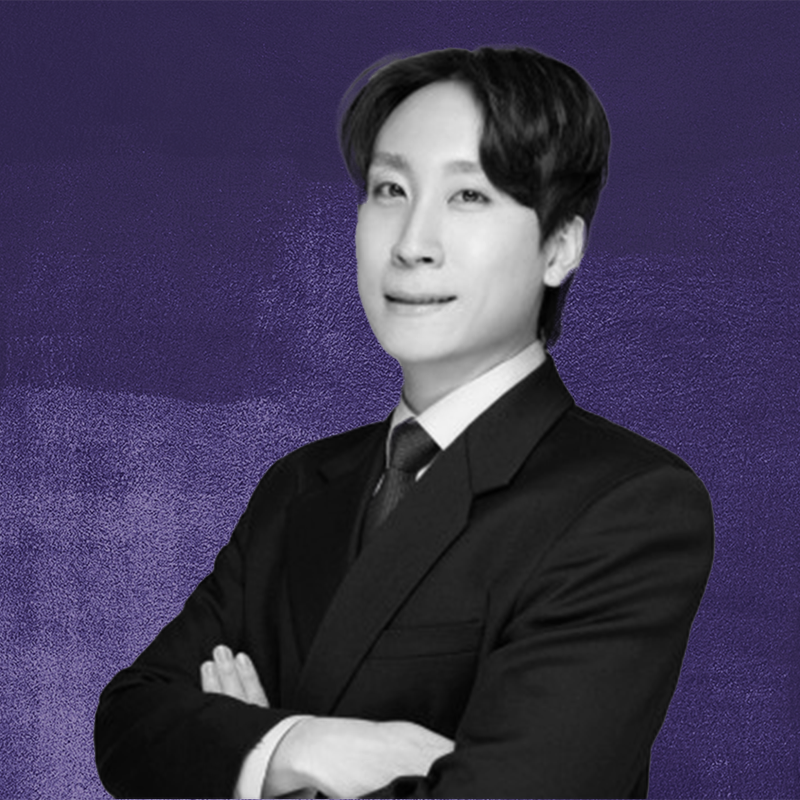
Henry Heo is an Assistant Professor in the Department of Information Technology and Analytics at American University's Kogod School of Business. His research focuses on how digital nudges can enhance user engagement across digital platforms, particularly in the contexts of persuasion, consumption, and matching.
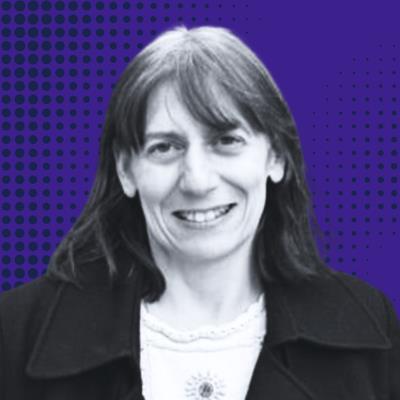
Nathalie Japkowicz is a professor in the Computer Science Department at American University, which she chaired from July 2018 to June 2024. Prior to that, she directed the Laboratory for Research on Machine Learning applied to Defense and Security at the University of Ottawa in Canada. She is a Professor and AI/Machine Learning researcher particularly interested in lifelong machine learning, anomaly detection, hate speech monitoring, machine learning evaluation, and the handling of uncharacteristic data including datasets plagued by class imbalances. She trained over 30 graduate students. Her research has been funded by American University’s Signature Research Initiative, DARPA’s L2M program, NSERC, DRDC, Health Canada, and various private companies. Her publications include Evaluating Learning Algorithms: A Classification Perspective at Cambridge University Press (2011), an edited book in the Springer Series on Big Data (2016), and over 150 book chapters, journal articles, and conference or workshop papers. Her recent co-authored book entitled Machine Learning Evaluation: Towards Reliable and Responsible AI at Cambridge University Press appeared in November 2024. She received five best paper awards, including the prestigious European Conference on Machine Learning 2014 Test of Time award, and was awarded the Canadian Artificial Intelligence Association Distinguished Service Award in 2021.
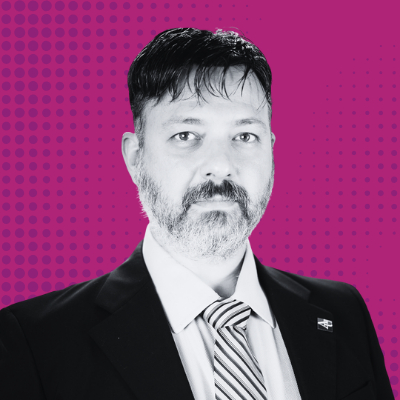
Shawn Janzen is a information scientist with expertise in information behavior, data analytics, sociotechnical cybersecurity, cognitive security, public administration, public policy, and technology policy.
Mr. Janzen's research interests span managerial information behaviors, particularly how senior leadership decision-making translates into organizational behaviors. He is also broadly interested in how individuals and organizations create, choose to share, and adopt information that becomes part of institutional knowledge, engagement, and administration. He focuses these interests on issues related to disruptive and emerging technologies, cybersecurity, ethics, and public policy. Mr. Janzen is also interested in helping advance data analytics instructional content and tools to make the user experience more inclusive and accessible. Some of his recent work appeared at the Academy of Management, the Association for Information Science and Technology, and the International Conference on Human-Computer Interaction.
Outside Kogod, Mr. Janzen is Affiliated Faculty at The Shahal M. Khan Cyber and Economic Security Institute and member of the AU Cyber Community.
Prior to joinging AU, Mr. Janzen was a researcher at the Applied Research Laboratory for Intelligence and Security (ARLIS). At ARLIS, Mr. Janzen helped lead research projects on global IT assessment and mission assurance related planning, as well as participated in research teams pertaining to mis-/disinformation, cognitive security, knowledge production, and insider threats on behalf of the US Department of Defense. Select other professional experiences include the U.S. Peace Corps, the European Parliament, and the Chicago Council on Global Affairs. He also served on several nonprofit boards and consulted on organizational management, international affairs, and institutional sustainability. Mr. Janzen continues to regularly serve as a judge at various data challenge competitions.
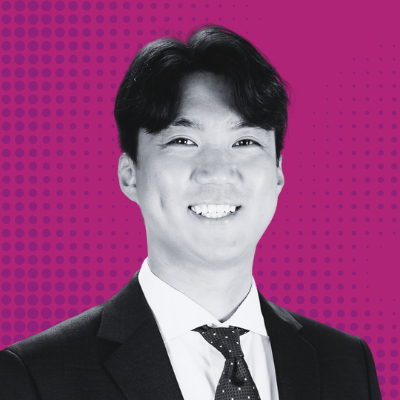
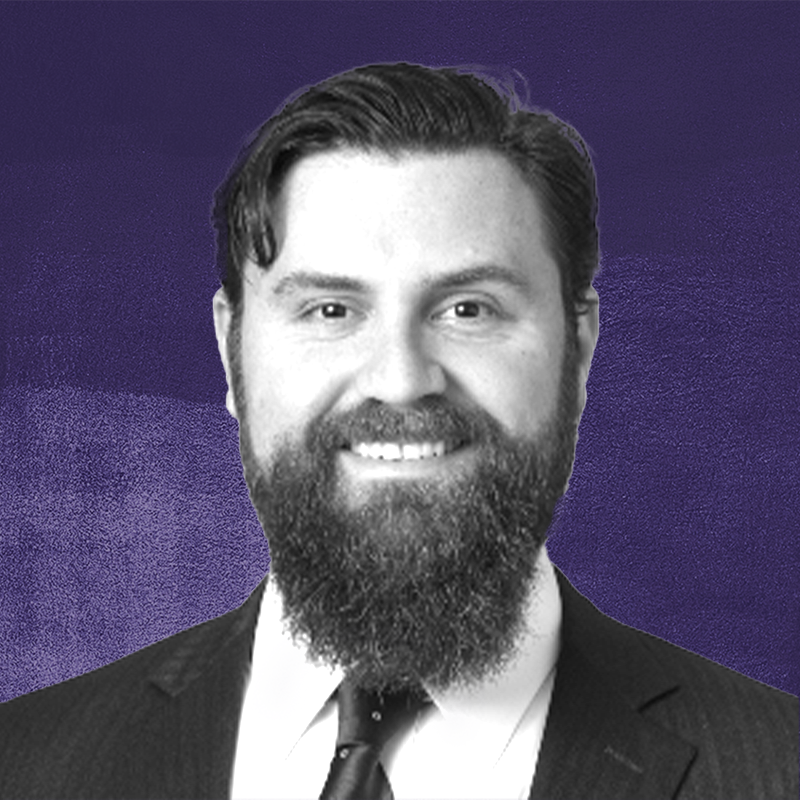
Dr. Trace Lasley is a Professor of Practice in the Terrorism and Homeland Security Policy Program in the School of Public Affairs. He teaches courses on homeland security at the graduate and undergraduate levels and leads SPA’s Professional Development Workshop Series.
He teaches courses on terrorism and homeland security policy including Artificial Intelligence in Homeland Security; Causes of Terrorism and Political Violence; Domestic Terrorism; Terrorism and Transnational Crime; and the Principles of Homeland Security.
He created and runs the SPA Professional Development Workshop Series for students in public service to help with career planning, resumes, interviewing, plain writing, and other skills. He leads multiple extracurricular opportunities supporting student development of advanced knowledge, skills, and abilities, including, the Homeland Security Communications Lab, the Homeland Security Strategy Workshop, and the annual THSP Women in Homeland Security Career Panel.
Dr. Lasley emphasizes practical experience in his courses. Helping to establish the THSP Practicum program, he successfully led projects for the Department of Justice, Department of Homeland Security, Homeland Security Investigations, and Pangiam. His courses regularly feature hands-on activities including risk analysis, strategic planning, program development, project management, and executive briefing.
His research focuses on illicit organization behavior including strategy, tactics, recruitment, and funding of violent groups including terrorists, transnational criminals, cybercriminals, and insurgents. His research has appeared in Conflict Management and Peace Science, Risk Analysis, and Third World Quarterly. He shares his expertise on homeland security and curriculum development at industry and academic conferences including the Center for Homeland and Defense Security, Federal Academic Alliance, Homeland Security Enterprise Forum, and US Army Antiterrorism Training Seminar.
He began the THSP Summer Seminar Series in 2024 with a five-day exploration of artificial intelligence and machine learning that included discussions with government and industry experts on conceptual foundations, applications, research and analysis, ethics, and the future of emerging technology.
In addition to his teaching appointment, Dr. Lasley is an atrocity prevention advisor at the US State Department. He received his Ph.D. in Political Science from the University of Kentucky.
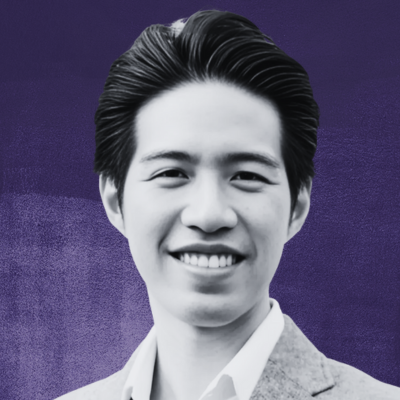
Professor Lee conducts research in digital marketing, language in social media, and word-of-mouth influence in consumer behavior. Current research topics include virality in word-of-mouth, brand management in social media, and how influencers affect brand perceptions. His research has been featured in publications such as the Sloan Management Review, the Journal of Consumer Psychology, the Journal of Consumer Research and the Journal of Marketing Research, as well as media outlets such as Modern Advertising, The Financial Times, and The Huffington Post.
Prior to joining American University, Lee served on the faculty at MIT Sloan and NYU Shanghai.
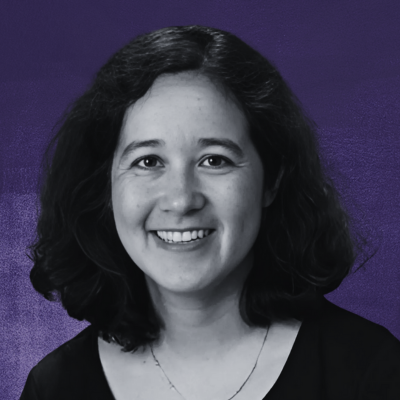
Robin Lumsdaine joined the Kogod School of Business at American University as the Crown Prince of Bahrain Chair in International Finance. She was previously an Associate Director in the Division of Banking Supervision and Regulation and Head of the Quantitative Risk Management Group at the Board of Governors of the Federal Reserve System. Before joining the Board, Professor Lumsdaine was a Director in the Global Markets Research division of Deutsche Bank where she served as the Global Inflation-Linked Bond Strategist. She has also held positions as Professor of Economics at Brown University, Senior Economist at the President's Council of Economic Advisers, and Assistant Professor at Princeton University.
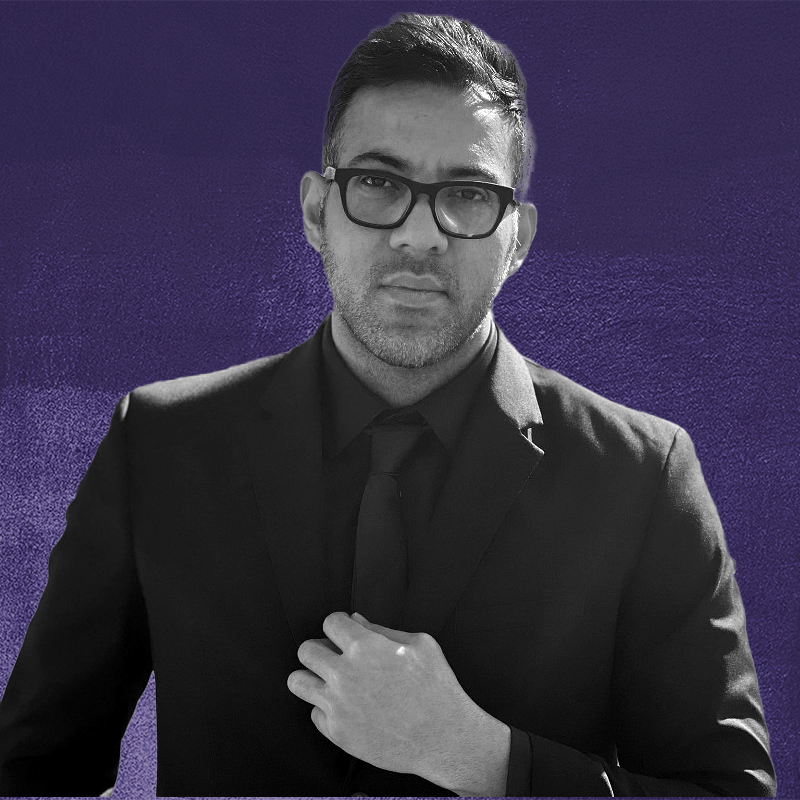
Dr. Mousavi completed a postdoctoral fellowship at the Informatics Institute at the University of Florida. Prior to this, he held a postdoctoral position at the Institute for Mathematics and its Applications at the University of Minnesota, Twin Cities. He earned his Ph.D. in Applied Mathematics from the University of Maryland, Baltimore County, in 2019. His research interests include machine learning, sparse optimization, and portfolio optimization.
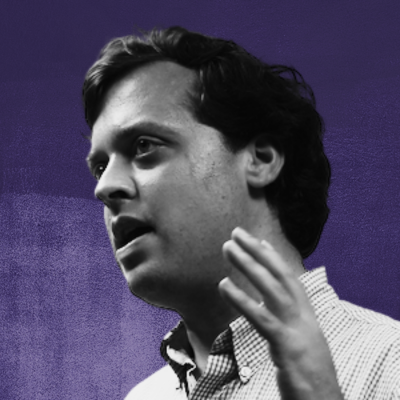
Prof. Mark J. Nelson is a computer scientist with a research focus on artificial intelligence (AI). His research primarily uses games as a domain of study. This includes: technical research that uses games to analyze the robustness of AI decision-making algorithms; work on bots that can play and analyze games; design-support work that uses AI to empower professional and novice designers; and conceptual work on formal models of games' mechanical and meaning-making elements. In addition to the Department of Computer Science, he researches and teaches in the interdisciplinary AU Game Center.
He is currently (2020–2024) the Principal Investigator of the National Science Foundation research project Characterizing Algorithm-Relative Difficulty of Agent Benchmarks.
Other research interests include computer music, domain-specific programming languages, and the history of computing.
Before coming to American University, he was a faculty member, researcher, and student at various places around the world: Falmouth University (UK), the IT University of Copenhagen (Denmark), the University of California Santa Cruz (USA), the Georgia Institute of Technology (USA), and Harvey Mudd College (USA).
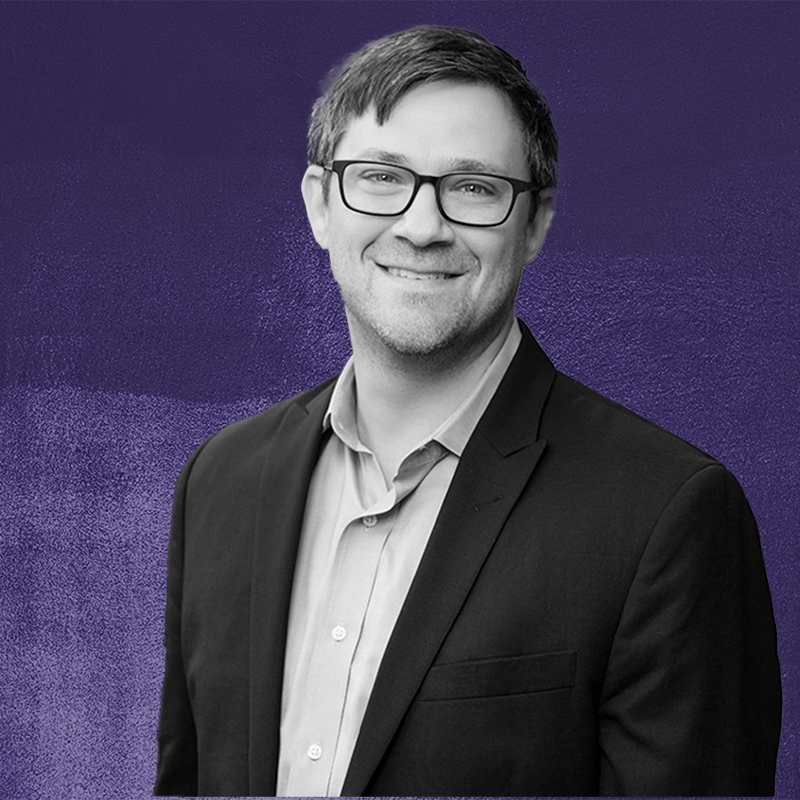
Chris Parker is the Richard S. Reynolds associate professor of business administration at the University of Virginia’s Darden Graduate School of Business where he teaches core Operations Management courses in Darden’s MBA, Executive MBA, and Part-Time MBA programs. His teaching experience also includes courses related to Python programming, business analytics, supply chain analytics, data visualization, statistics, and supply chain design.
His research focuses on the impact of information technology on operations. In this work, he examines both how information flows affect a firm's decisions but also outcomes on a broad set of stakeholders. He then applies OM and analytics principles to find potential improvements. A significant portion of his work has its roots in inclusive prosperity/Socially-Responsible Development with a particular emphasis on emerging markets. While not always distinct from Socially-Responsible Development, he also has research that is more closely categorized as IT-enabled Business Models, Digital Financial Services, and Supply Chain Coordination. His work has appeared in leading operations management and information systems journals including Management Science, Manufacturing & Services Operations Management, Production and Operations Management, and the Journal of Management Information Systems.
Prior to Darden, Chris was a Kogod Research Professor and Associate Professor of Information Technology and Analytics at the Kogod School of Business at American University, and an Assistant Professor of Supply Chain Management at the Smeal College of Business at Pennsylvania State University. Chris also had the pleasure to be a Visiting Professor at Darden and at Georgetown University's McDonough School of Business. Chris received his PhD in Management Science and Operations from London Business School in 2012.
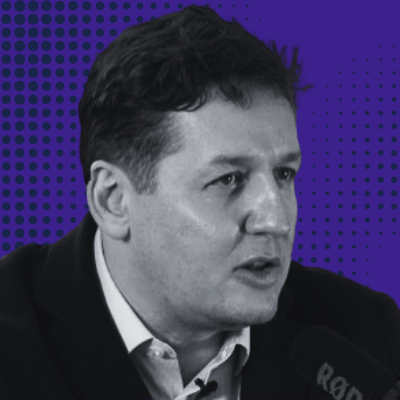
I am an Associate Professor in the Film and Media Arts Division of the School of Communication at American University in Washington, D.C., where I explore the confluence of filmmaking, game design, and computer science. My creative portfolio includes writing and directing one of the first volumetric (holographic) fiction films, "Vera," and producing several award-winning short films. In the realm of virtual reality, I have developed engaging VR video games such as "Cube VR" and "Chessnaught VR."
My academic journey is marked by the publication of over 60 peer-reviewed research papers, which have garnered more than 1100 citations, reflecting the impact of my work on immersive media, storytelling, and the application of technology. As the Founding Director of the Institute for Immersive Designs, Experiences, Applications, and Stories (Institute for IDEAS) at American University, I lead initiatives that merge creativity with technological innovation.
Throughout my career, I have successfully attracted over $4 million in funding from prestigious institutions, including the National Science Foundation and the Canada Media Fund, to support my research and projects. My work not only contributes to the academic and creative communities but also aims to push the boundaries of how we engage with digital and immersive media.

Prof. Sabetghadam is a professorial lecturer and SoTL Fellow in the Center for Teaching, Research, and Learning at American University. She currently serves as a member of Quantitative Literacy Program at AU, as well as Education Policy Committee at SPA. Her fields of interest are Labor Economics, Economics of Education, Applied Microeconomics, Applied Econometrics and Public Policy. Her research areas are finding the effects of different policies on educational attainments of students.
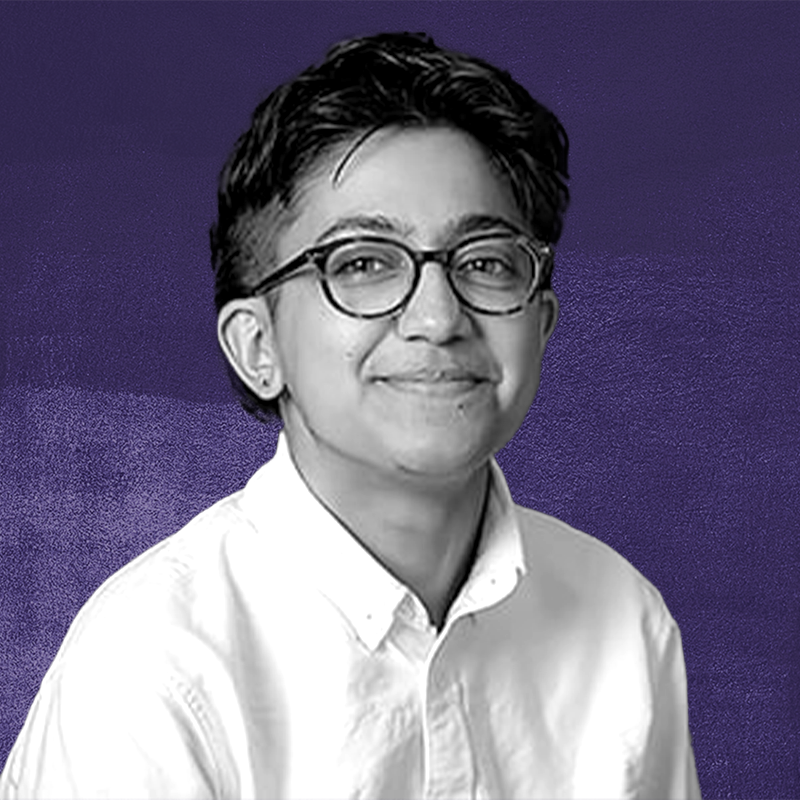
Aarushi Sahejpal is a data scientist, and journalism professor. He studies how to better hold institutions accountable by bringing science, medicine and technology to the public, and then he and his students do it!
Sahejpal is the Professorial Lecturer in quantitative methods and data journalism at American University's School of Communication, where he oversees data courses in the journalism program.
He is an alum of The White House Office of Science and Technology Policy, The COVID Tracking Project at The Atlantic, Reveal & The Center for Investigative Reporting, Cisco Systems, Education Week, and a former 3-time intern at the Investigative Reporting Workshop. His work at the COVID Tracking Project at The Atlantic was awarded the Sigma Delta Chi Award for Specialized Journalism Site, a Sigma Award for Data Journalism, and a New York University American Journalism Online Award for Best Data Visualization.
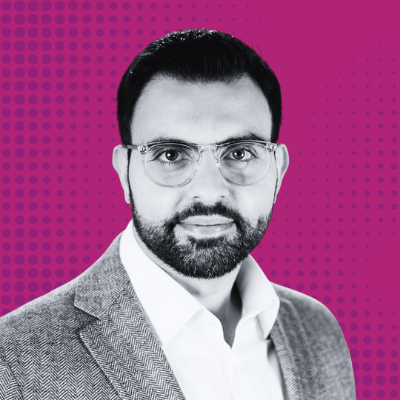
Professor Sanati is a faculty member in the Finance Department at the Kogod School of Business, American University. He joined AU in 2018 after earning his PhD in Finance from the University of Minnesota. He also holds an MBA and a BSc in Engineering. His research lies in the field of corporate finance, focusing on the determinants of firms’ financing decisions, inefficiencies in capital raising, and the differences between public and private capital markets. His work has been published in top finance journals, including the Journal of Financial Economics, the Review of Financial Studies, and the Journal of Financial and Quantitative Analaysis, and presented at various academic conferences and policy institutions, such as the American Finance Association (AFA), the National Bureau of Economic Research (NBER), the Federal Reserve Board, and the International Monetary Fund (IMF).
At AU, Professor Sanati teaches "Business Finance" to undergraduate students and "Advanced Quantitative Methods and Machine Learning in Finance" to graduate students. Prior to his academic career, he was a financial analyst in the financial services industry and the co-founder and CEO of an engineering startup company. For more information, visit his personal website.
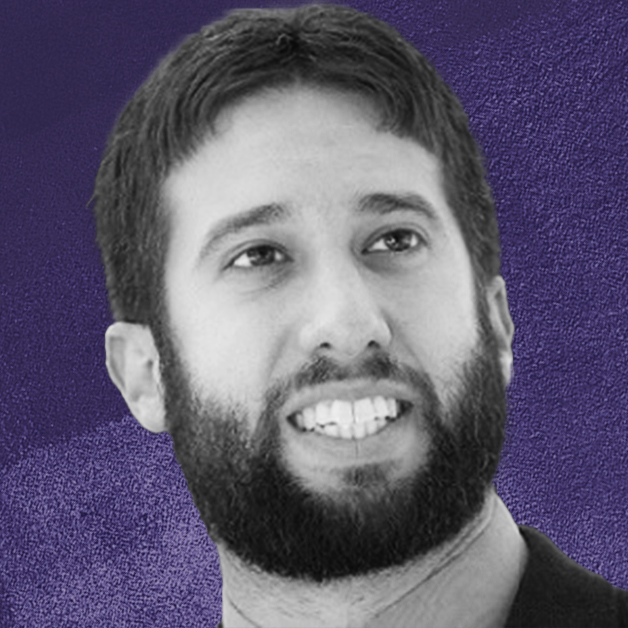
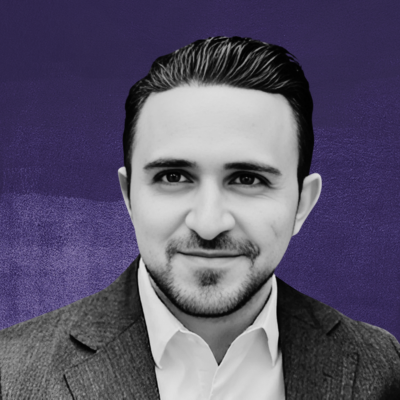
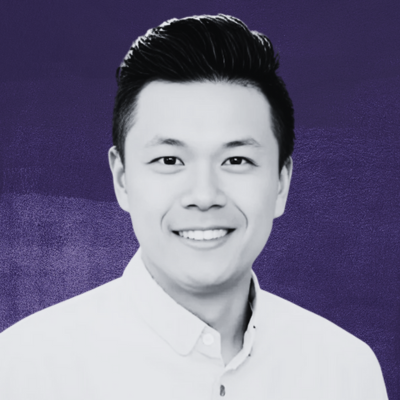
Chen Tang is an Assistant Professor of Management in the Kogod School of Business at American University. He received his Ph.D. in Human Resources and Industrial Relations from the University of Illinois Urbana-Champaign. Chen's research interests primarily include HR analytics, research methods, and behavioral ethics. His work has been published in journals such as the Journal of Applied Psychology, Personnel Psychology, and the Journal of Business Ethics.
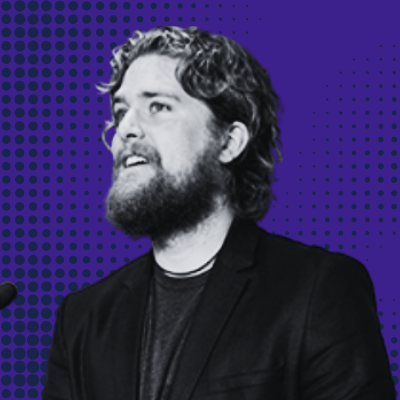
Mike Treanor, PhD, MFA, is the chair and an Associate Professor in the Department of Computer Science at American University and a founding member of the American University Game Center. His research broadly centers on designing and utilizing artificial intelligence systems to explore new approaches to understanding and creating videogames and computational media.
He's had work nominated for Technical Excellence at the Independent Games Festival and IndieCade and his scholarship is primarily about videogame interpretation, tools for game creation, social simulation and procedural content generation. He holds a MFA in Digital Art and New Media and a PhD in Computer Science from the University of California at Santa Cruz.
See http://www.mtreanor.com for more information.

Jim Quirk teaches a wide range of courses in American and comparative politics.
He has served on the AU faculty senate, as a CTRL Scholarship of Teaching & Learning (SoTL) Faculty Fellow for 2023-2025, and a Civic Dialogue faculty fellow for 2024-2025.
Prof Quirk has developed and taught AU Core courses for Complex Problems, Habits of Mind, and W2 (writing and information literacy). He has been a faculty advisor for the SPA and University student-led organizations.
He has published in U.S. and international journals on online learning, comparative nation-building, globalization, and American foreign policy. He is a Fellow with the Institute for Policy Research and has taught at Loyola University Maryland, The Catholic University of America, and the Varna [Bulgaria] Univ. of Economics.
He lectures on American federalism at the U.S. Congressional Office for International Leadership. Among his favorite work outside the classroom is experience in Russia, the Balkans, Mexico, Israel/Palestine, and the Kurdistan Region of Iraq; naval engineering support for The Bishop Group; Middle East Dialogue at Catholic University; ICANN MEAC SWG; and working with AU's Center for Teaching, Research and Learning.
He received the 2022 SPA Award for Outstanding Community Engagement.
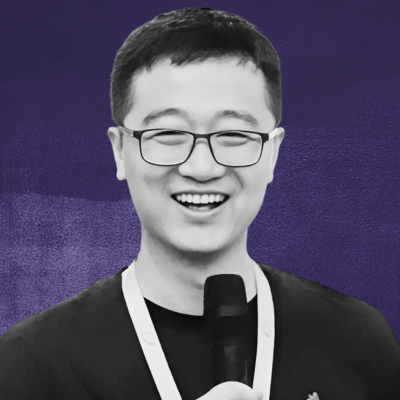

Tommy White is a Senior Professorial Lecturer (formerly “Executive-in-Residence”) at the Kogod School of Business at American University. In this role, he teaches undergraduate and graduate courses on introduction to business, introduction to entrepreneurship, entrepreneurship business planning, revenue/financial forecast modeling and start-up launch, and venture capital.
Professor White is also the Director of the Veloric Center for Entrepreneurship, where he works promotes/directs entrepreneurial experiential learning activities throughout the AU campus and directly works with student entrepreneurs launching companies.
Professor White is an entrepreneur with 3 successful exits and 2 failed ventures. He is an active angel investor and coaches/mentors 20 – 25 startup ventures annually throughout the DC Startup Ecosystem.
Professor White received his MBA in Marketing from the Kogod School of Business, American University (1995) and his BA in Economics and History from the University of North Carolina at Chapel Hill (1986).
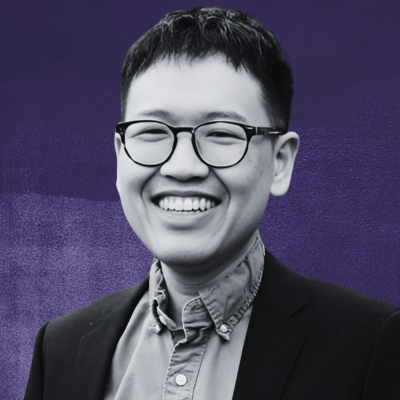
Prof. Patrick Wu's research focuses on developing AI/ML and natural language processing approaches to computational social science. These methods address research questions about topics such as political elite and non-elite ideology, affective polarization on social media, and hateful and abusive speech and memes.

Aref Zahed is a senior-level computer science researcher, lecturer, and technology leader with expertise in AI, robotics, cybersecurity, and computer engineering. Currently a Professorial Lecturer at American University, he leads AI and robotics initiatives, mentors students, and develops advanced technology solutions. He has played a key role in designing and implementing innovative projects, including humanoid robots, smart city technologies, and AI-driven educational tools. With a strong background in IT leadership, software development, and project management, Aref actively contributes to academic research and industry advancements. His work has earned international recognition, and he remains committed to shaping the future of technology and education.
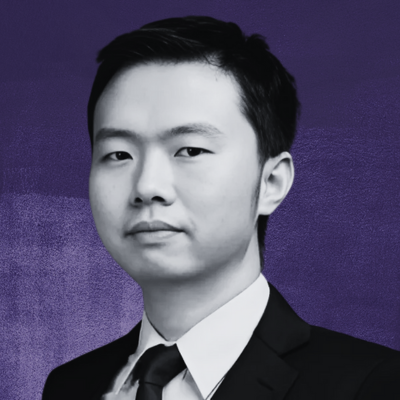
My main research area is cybersecurity economics and policies. My recent research addresses questions such as how to improve cybersecurity with crowdsourcing? How to address the security risks brought by AI technologies and hacker marketplaces? How government policies affect cybersecurity? I am a recipient of ACM SIGMIS Doctoral Dissertation Award from the Association of Information Systems.
Partnering with Perplexity AI
aligns perfectly with Kogod’s deep focus on preparing future business leaders for an AI-driven world.”
— David Marchick, Dean of the Kogod School of Business


Arguably the key player
is the Kogod School of Business, which has aggressively, quickly, and emphatically leaned into incorporating AI into its curriculum.”
— Jeff Wilser, Host, AI Curious Podcast


